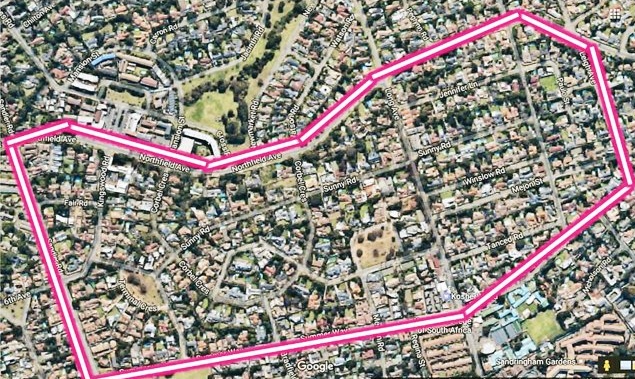
News

Are people selling up in Joburg’s ‘shtel’ for Israel?
JORDAN MOSHE
However, while it is true that there is a strong move towards emigration, the slow rate of house sales also has a lot to do with the general economic climate in South Africa, say estate agents.
“There are still bargains out there, and those who can afford to buy them will find them across various areas,” says Michael Rod, an agent at Vered Estates. “Millionaires are often made in a depressed market by buying when costs are low. There is money in South Africa, and there are people looking to buy property.”
Rod says that a supposed mass exodus of South African Jews is not the sole reason for the availability of property in these areas. The variety of stock on the market is the result of multiple and varied causes, and emigration is only one of them.
“Families are going on aliyah, of that there is no question. However, if 80 houses are for sale across Glenhazel, only five or six are on the market for aliyah reasons.”
Joel Harris of Jawitz Properties agrees, saying that he has experienced a record year in terms of sales in Glenhazel and surrounding areas in spite of an increase in people making aliyah over the past six months. “For every home left empty, someone is buying another. Property remains a good investment, although it may take longer than it used to get a return.”
You Realty estate agent Spencer Schwartz describes those selling to make aliyah as “a pocket”.
“Over the years, there have always been pockets of this,” he says. “We seem to be in one of these periods at the moment.
“There are about 300 properties for sale in Glenhazel, Fairmount, Highlands North, Sandringham, and Sydenham. Obviously not all are Jewish owned, but a significant percentage are. There is a lot of aliyah talk at the moment, and the fact is that Jews are buying less. Still, there is a strong level of serious Jewish investors who are still active.”
The financial constraints experienced by many account for a considerable portion of the unsold properties in our areas. Rod says that many of those who are selling are at retirement age, having bought properties 40-50 years ago, and are seeking to downsize or move into a retirement village. These older houses are no longer as popular as they once were.
“Three to four years ago, you could put an unrenovated, forty-year old house on sale in Tanced Road in Glenhazel for R4.2 million. It’s just not the same today. Such a house would fetch perhaps R2.8 million. People are operating on the financial aspirations of the past, but there simply isn’t a market when you ask for R3.8 million. People won’t spend that kind of money on an old house anymore.”
The fact is that most people simply don’t have the money, says Harris. “Your average middle-class buyer in these areas has two or three children to send to Jewish schools, has a car or two to maintain, and has to make provision for an increasing cost of living all the time. What people have left to spend will ultimately determine the price of property.”
Rod agrees, pointing out that the average Glenhazel resident needs to be able to afford expenditure in excess of R100 000 a month along with a bond of R1.07 million. “The banks won’t back you,” he says. “People just can’t afford to spend R30 000 on a bond, they can pay half of that. There’s no buying power out there, and if people don’t have the money, you can’t get R4 million for a property.”
Sellers are therefore beginning to understand that they need to adjust their expectations, and meet buyers on their level. Schwartz says much depends on why an owner is selling, pointing out that urgent and desperate sellers are settling for lower offers.
“If sellers aren’t realistic, they won’t sell. It’s simple. The market is what buyers will pay, and if a property is not priced at market value, it won’t sell unless circumstances are exceptional.” Though renovations of properties are taking place, owners and buyers are cautious not to over-capitalise. This is because these modern properties then could become unsellable down the line, with a negative effect on the investment. Harris agrees, saying that a buyer can always be found, but sellers need to be aware of what others have sold, and the price they received.
Unfortunately, in Jewish areas, buyers can also have unrealistic expectations.
“Quite a few buyers are simply ignorant of reality. They want all their boxes ticked – they don’t want to walk more than 500m to shul, and won’t settle for an unrenovated bathroom. The need to compromise is essential on both sides, and people will realise that the Jewish market is not as limited as they previously thought.”
Schwartz concludes that it has never been easier or more affordable for the younger generation to buy property than it is now.
“Property has been, and will always be, a highly desirable asset,” he says. “This is especially true among Jews who have always been strong investors in property. In spite of the issues in this country, many are not leaving, and therefore there will always be money available for property.”




